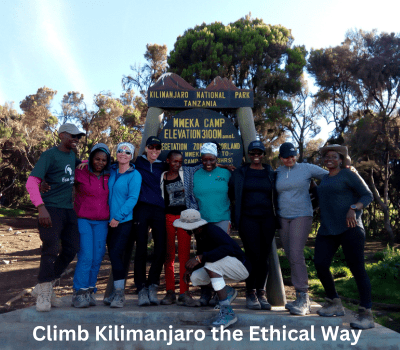Can I Climb Kilimanjaro Without a Guide If I Have Prior Mountaineering Experience?
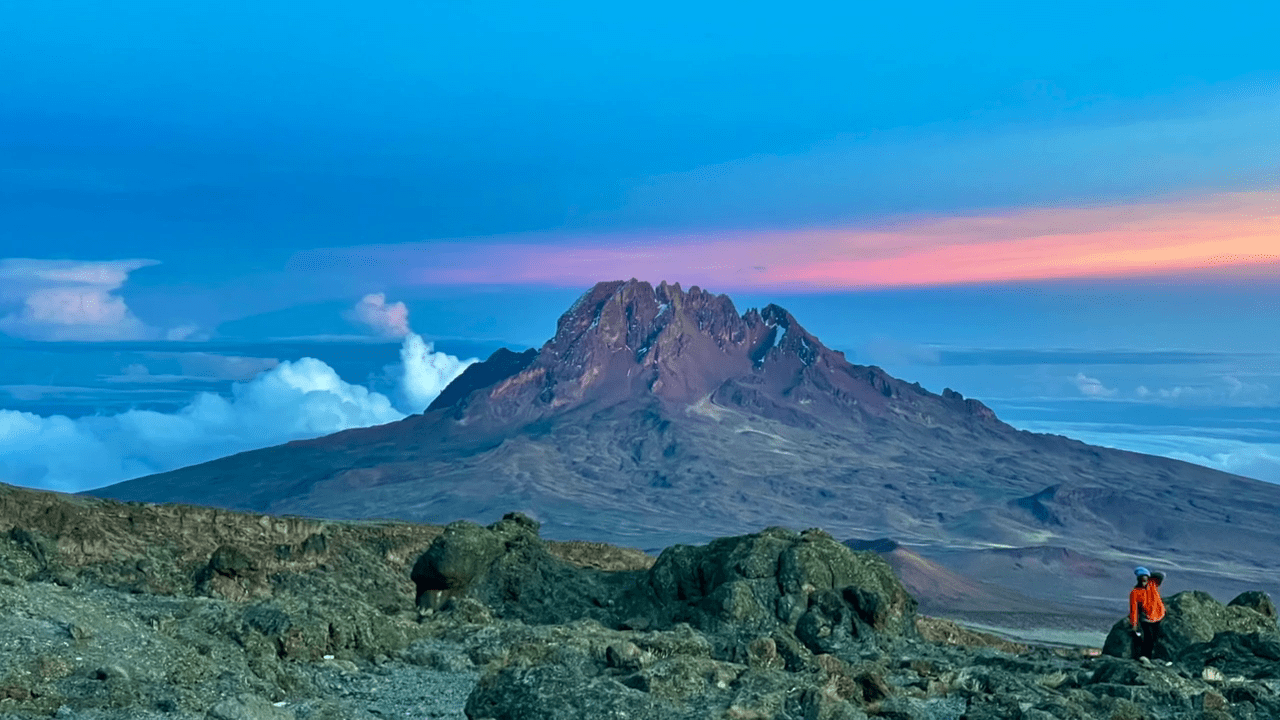
Introduction: Experience Meets Regulation
So, you’ve scaled the Alps, conquered Everest Base Camp, or trekked in Patagonia—naturally, Kilimanjaro feels like the next logical summit. And with all that experience under your belt, the question might arise: do I really need a guide to climb Mount Kilimanjaro?
While you might be confident in your outdoor skills, climbing Kilimanjaro is not just a personal challenge—it’s also a regulated adventure governed by Tanzanian law. In this article, we’ll explore whether prior mountaineering experience exempts you from the legal guide requirement, and why following this rule could actually improve your climb.
The Legal Requirement: Does Experience Change the Law?
In short: no. Regardless of your mountaineering background, Tanzanian law mandates that all Kilimanjaro climbers must be accompanied by a certified guide. This applies whether you’re a first-timer or a professional alpine climber.
The rule is enforced by the Tanzania National Parks Authority (TANAPA) and applies to all national park entries. No exceptions are made based on prior experience. Climbers without a guide will be denied entry at park gates such as Machame, Lemosho, and Marangu.
This legal framework exists to promote safety, protect the environment, and support local communities through job creation in tourism.
Why Mountaineering Experience Isn’t Enough on Kilimanjaro
Kilimanjaro may not require ropes, crampons, or technical climbing skills—but that doesn’t mean it’s easy or safe to climb alone. Even expert trekkers face risks:
- Altitude Sickness: Kilimanjaro’s rapid elevation gain to 5,895 meters (Uhuru Peak) increases the risk of AMS—even for seasoned hikers.
- Navigation Challenges: Trails are not always well-marked, especially in dense rainforest or alpine desert zones where weather can obscure visibility.
- Unpredictable Weather: Storms, snowfall, and temperature drops can happen with little warning, even during the dry season.
- Medical Emergencies: Without a guide, organizing emergency evacuations or finding help can be nearly impossible.
Climbing independently may work in less-regulated environments, but on Kilimanjaro, even the most skilled adventurers are expected to follow local protocol—for good reason.
What Tanzanian Law Says About Independent Climbs
TANAPA guidelines clearly state that “no person shall enter Kilimanjaro National Park for the purpose of climbing the mountain unless accompanied by a registered mountain guide.” This law is not open to interpretation and is enforced at all major entry points.
Attempting to defy this regulation can result in:
- Immediate removal from the park
- Fines and legal penalties
- Loss of park access privileges
- Nullification of your travel insurance coverage
This rule isn’t about underestimating your skill—it’s about protecting all climbers and preserving the park.
How Experienced Climbers Can Benefit from Hiring a Guide
If you’re used to going it alone, hiring a guide might feel like a step back—but with the right team, it can be an upgrade. Here’s why:
- Logistical Ease: Guides handle permits, registration, and camp coordination—leaving you to enjoy the trek.
- Local Expertise: Learn about the mountain’s geology, flora, and culture from someone who grew up in its shadow.
- Health Monitoring: Reputable operators use pulse oximeters and daily health checks, especially at higher altitudes.
- Route Customization: Experienced trekkers can request tailored pacing, side treks, and specific camp strategies.
Companies like Eco-Africa Climbing specialize in working with both novice and expert climbers to deliver a safe, enriching experience on the mountain.
Common Myths About Solo Climbs: Debunking the Misconceptions
Many seasoned mountaineers believe that their extensive experience exempts them from the regulations set by the Tanzanian authorities. However, this is a misconception. Regardless of one’s climbing background, Tanzanian law mandates that all climbers of Mount Kilimanjaro be accompanied by a licensed guide. This rule is strictly enforced to ensure the safety of climbers and the preservation of the mountain’s environment.
Another common myth is that hiring a guide diminishes the authenticity of the climbing experience. In reality, guides enhance the journey by providing valuable insights into the local culture, flora, and fauna, as well as ensuring adherence to safety protocols. Their presence allows climbers to focus on the ascent without the added stress of navigation and logistics.
Safety Challenges: The Hidden Risks of Climbing Without a Guide
Climbing Mount Kilimanjaro presents unique challenges that can be underestimated, even by experienced mountaineers. The rapid ascent to high altitudes increases the risk of Acute Mountain Sickness (AMS), which can lead to serious health complications if not promptly addressed. Licensed guides are trained to recognize the early symptoms of AMS and take necessary actions to ensure the well-being of climbers.
Additionally, the mountain’s weather conditions can change abruptly, leading to potential hazards such as hypothermia or disorientation. Guides possess the knowledge to navigate these situations safely, making real-time decisions that can be critical to the success and safety of the expedition.
Comparison with Other Peaks: Understanding Kilimanjaro’s Unique Challenges
While Mount Kilimanjaro is often considered a non-technical climb, it should not be underestimated. Unlike other high-altitude peaks that require technical climbing skills, Kilimanjaro’s primary challenge lies in its altitude and the speed of ascent. Climbers ascend from approximately 1,800 meters to nearly 6,000 meters in a matter of days, leaving little time for acclimatization.
This rapid gain in elevation increases the risk of altitude-related illnesses. In contrast, other high-altitude climbs often incorporate longer acclimatization periods and may involve technical climbing, which naturally slows the ascent. Therefore, even experienced climbers must approach Kilimanjaro with caution and respect for its unique challenges.
Expert Testimonies: Insights from Seasoned Climbers
Many seasoned climbers who have tackled Mount Kilimanjaro emphasize the importance of hiring a licensed guide. Their experiences highlight that, despite their extensive mountaineering backgrounds, the guidance and support provided by local experts were invaluable.
These testimonies often point to the guides’ deep understanding of the mountain’s terrain, weather patterns, and cultural significance. Moreover, climbers appreciate the added safety net that guides provide, particularly in managing altitude sickness and navigating challenging conditions. These insights reinforce the notion that, regardless of experience, the presence of a knowledgeable guide is crucial for a successful and safe ascent of Kilimanjaro.
Legal Consequences of Climbing Without a Guide
Attempting to climb Mount Kilimanjaro without a licensed guide is not only illegal but also carries significant legal repercussions. Tanzanian law mandates that all climbers must be accompanied by a registered guide affiliated with a licensed tour operator. This regulation is strictly enforced by the Kilimanjaro National Park Authority (KINAPA) and has been in place since 1991.
If you attempt to climb without a guide, you can expect the following consequences:
- Denial of Entry: Park rangers will refuse entry to anyone not accompanied by a licensed guide.
- Fines and Penalties: Violators may face substantial fines and legal action.
- Deportation: In severe cases, climbers may be deported and banned from re-entering Tanzania.
- Insurance Nullification: Most travel insurance policies will not cover incidents that occur during unauthorized climbs.
These strict measures are in place to ensure the safety of climbers and the preservation of the mountain’s delicate ecosystem.
Ethical Considerations: Supporting the Local Community
Beyond legal obligations, hiring a guide and support team is an ethical choice that supports the local economy. The tourism industry surrounding Mount Kilimanjaro provides employment for thousands of Tanzanians, including guides, porters, and cooks.
By hiring a licensed guide, you contribute to:
- Fair Employment: Ensuring that workers receive fair wages and proper working conditions.
- Community Development: Supporting local businesses and communities that rely on tourism income.
- Cultural Exchange: Engaging with local guides offers a richer understanding of the region’s culture and traditions.
Choosing a reputable tour operator that adheres to ethical standards amplifies the positive impact of your climb on the local community.
Insurance Implications: Risks of Unauthorized Climbs
Climbing Mount Kilimanjaro without a licensed guide not only violates Tanzanian law but also jeopardizes your travel insurance coverage. Most insurance providers stipulate that coverage is contingent upon adherence to local laws and regulations.
Engaging in an unauthorized climb can result in:
- Denied Claims: Insurance companies may refuse to cover medical emergencies or evacuation costs incurred during illegal climbs.
- Financial Burden: Without insurance coverage, climbers are responsible for all expenses related to accidents or health issues.
- Legal Liability: Unauthorized activities may expose climbers to legal action and additional penalties.
To ensure comprehensive coverage and peace of mind, it is imperative to comply with all legal requirements, including hiring a licensed guide.
Choosing a Reputable Tour Operator
Selecting a trustworthy and licensed tour operator is crucial for a safe and legally compliant Kilimanjaro climb. Here are key factors to consider:
- Licensing: Verify that the operator is registered with the Kilimanjaro National Park Authority and holds all necessary permits.
- Experience: Look for operators with a proven track record of successful climbs and positive client testimonials.
- Ethical Practices: Choose companies that treat their staff fairly and support sustainable tourism initiatives.
- Transparency: Ensure that the operator provides clear information about costs, services, and safety protocols.
Engaging a reputable tour operator not only ensures compliance with legal requirements but also enhances the overall quality and safety of your climbing experience.
Conclusion: Experience Doesn’t Replace Responsibility
While your mountaineering resume may be impressive, climbing Mount Kilimanjaro without a guide is not just discouraged—it’s illegal. Tanzanian law mandates that all climbers, regardless of experience level, must be accompanied by a licensed guide. This rule exists not only to protect you but also to safeguard the mountain’s environment and support the local economy.
Companies like Eco-Africa Climbing provide professional, ethical, and experienced guides who enhance your trek with safety checks, cultural insights, and smooth logistics. Rather than limiting your freedom, a guide enriches your climb.
Frequently Asked Questions (FAQs)
Can I show my mountaineering certificates to skip the guide requirement?
No. Tanzanian law does not allow any exceptions based on previous experience or certifications. A licensed local guide is mandatory.
What if I have climbed higher peaks solo?
That’s commendable, but Kilimanjaro is regulated differently. Legal access and support are still required, regardless of your prior achievements.
Are there any benefits to hiring a guide for experienced climbers?
Absolutely. Guides handle logistics, provide health monitoring, and offer flexibility for a more tailored experience—even for seasoned mountaineers.
Will my insurance cover me if I climb without a guide?
Most insurance providers require climbs to comply with local laws. Unauthorized climbs can result in denied claims, leaving you fully liable.
How do I find a reputable guide or operator?
Choose KPAP-certified companies like Eco-Africa Climbing. They offer fair wages, ethical practices, and fully licensed operations.
Climb Kilimanjaro the Right Way with Eco-Africa Climbing
Don’t let legal hurdles ruin your dream climb. Book your Kilimanjaro adventure with Eco-Africa Climbing for expert guides, responsible tourism, and a seamless experience from start to summit.
Recommended routes for experienced trekkers:
Get your personalized quote now or talk to our expert team for more information.
Share:
Related Posts
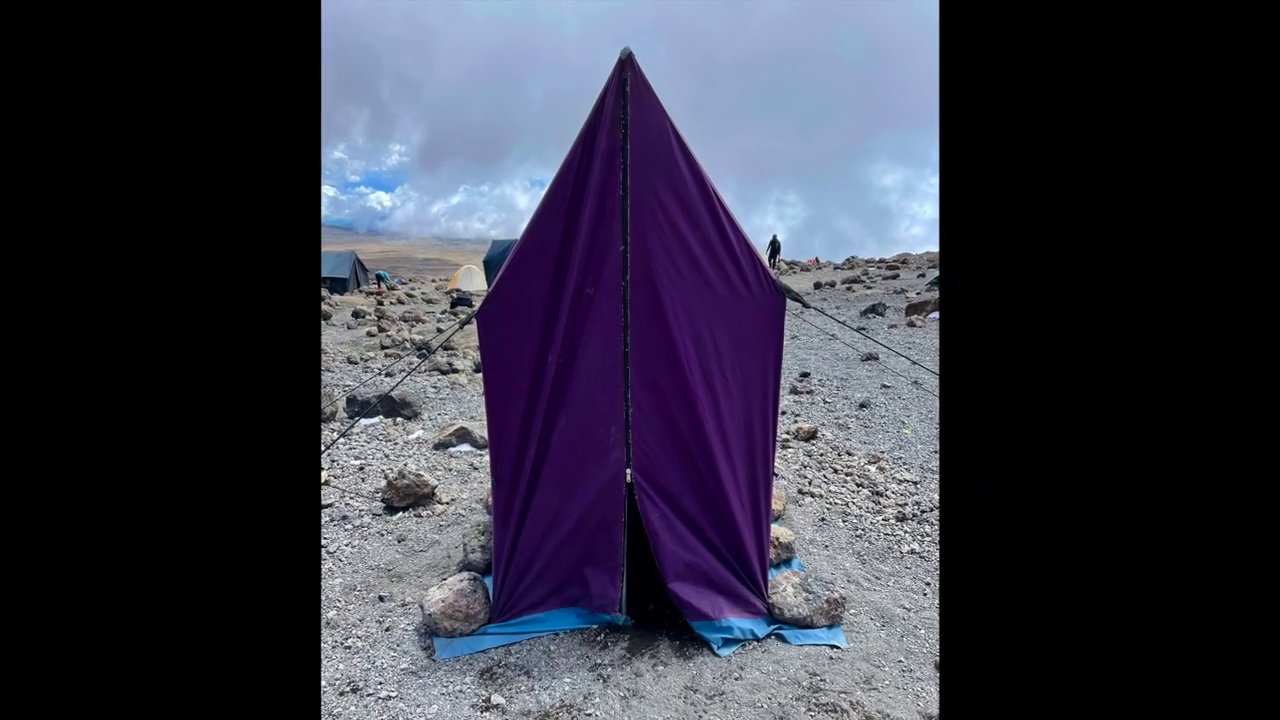
bathroom on mountain kilimanjaro
Bathroom on Mountain Kilimanjaro: What to Expect and How to Prepare Introduction One of the most common — and least discussed — questions from people
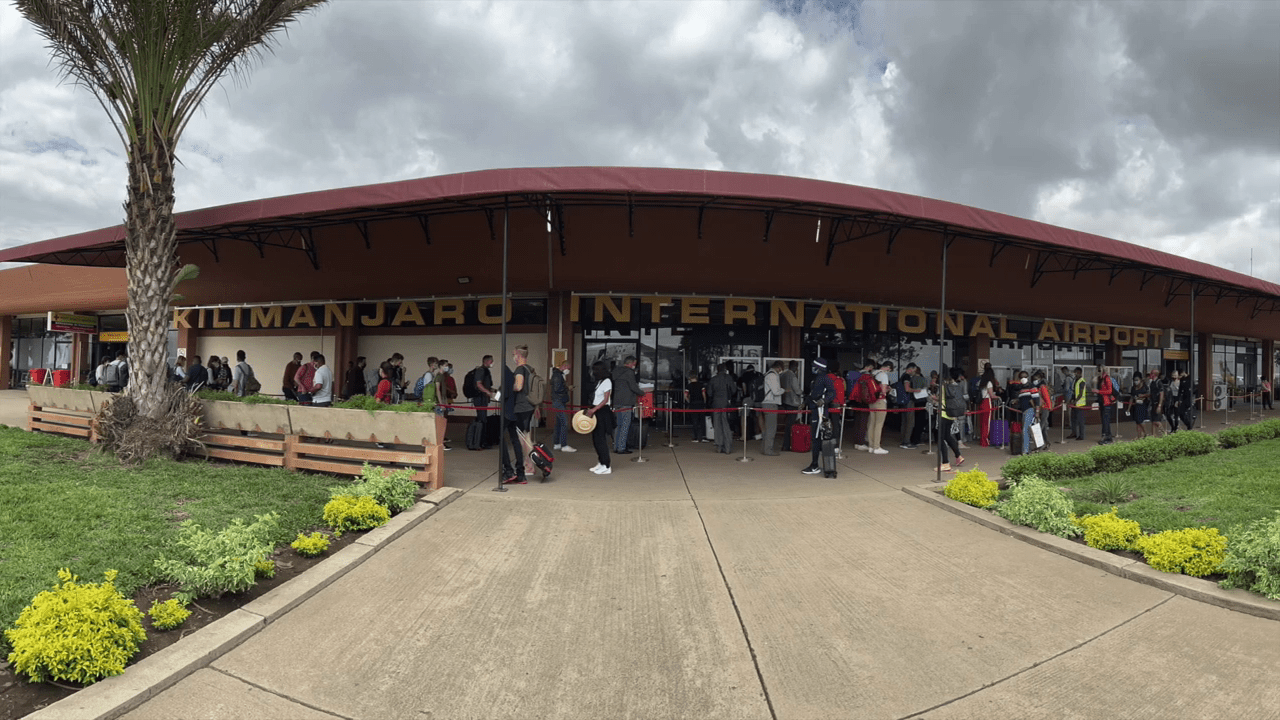
Are Guides Readily Available in Tanzania Without Prior Booking?
Are Guides Readily Available in Tanzania Without Prior Booking? Introduction: Should You Risk Climbing Without Pre-Booking? Climbing Mount Kilimanjaro is a dream for many adventurers.
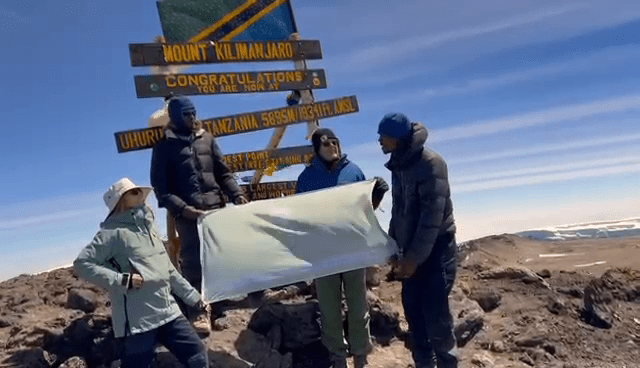
How Can I Find a Reliable Local Guide for My Kilimanjaro Expedition?
How Can I Find a Reliable Local Guide for My Kilimanjaro Expedition? Introduction: Why the Right Guide Is Key to Kilimanjaro Success Climbing Mount Kilimanjaro
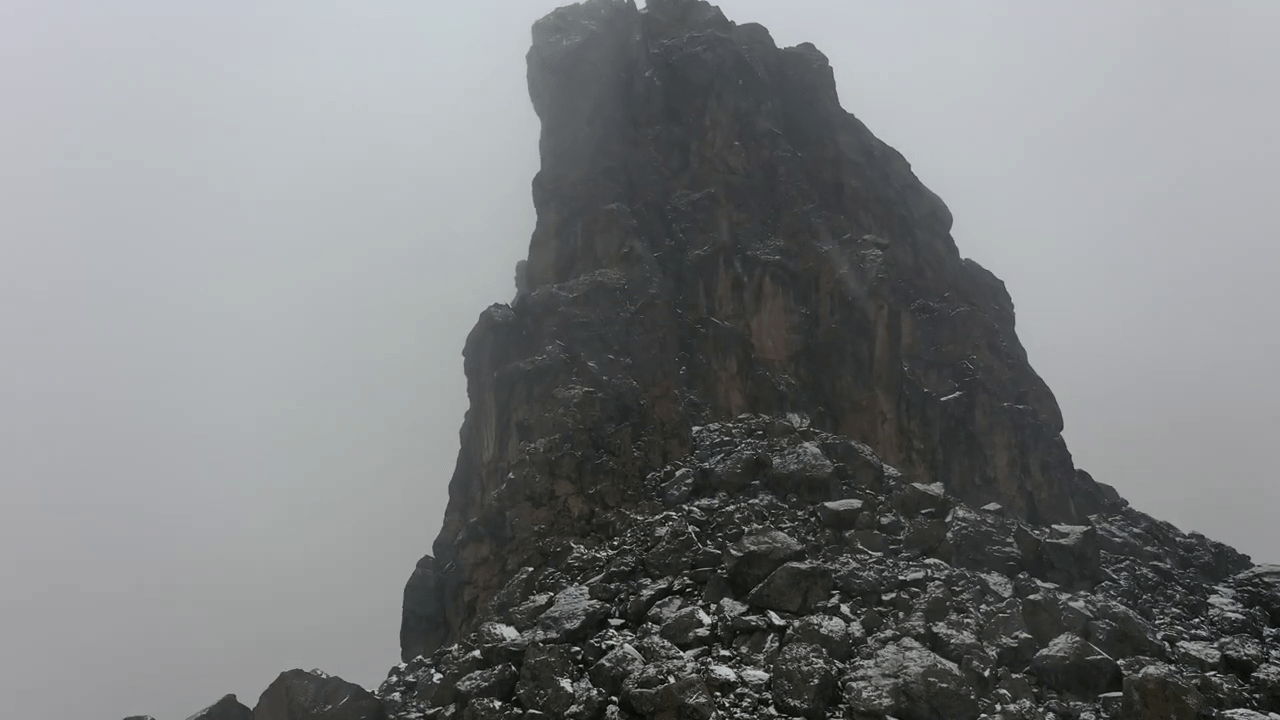
Is Climbing Kilimanjaro Dangerous for Individuals Without Mountaineering Experience?
Is Climbing Kilimanjaro Dangerous for Individuals Without Mountaineering Experience? Introduction: The Myth of Danger and Experience Many aspiring adventurers wonder if climbing Mount Kilimanjaro is
